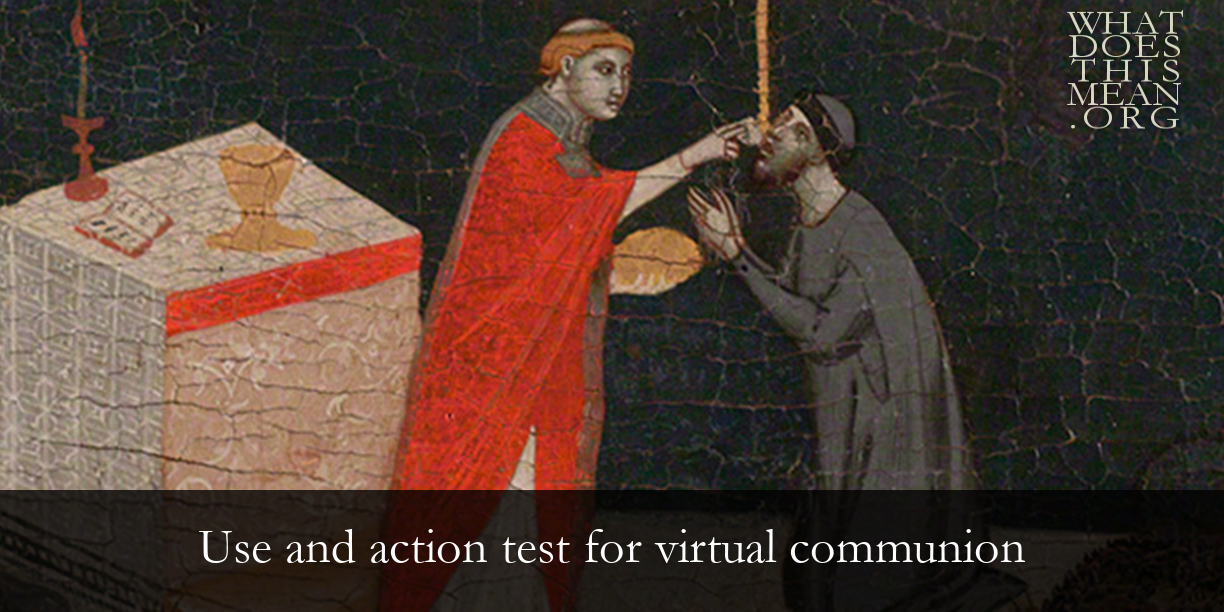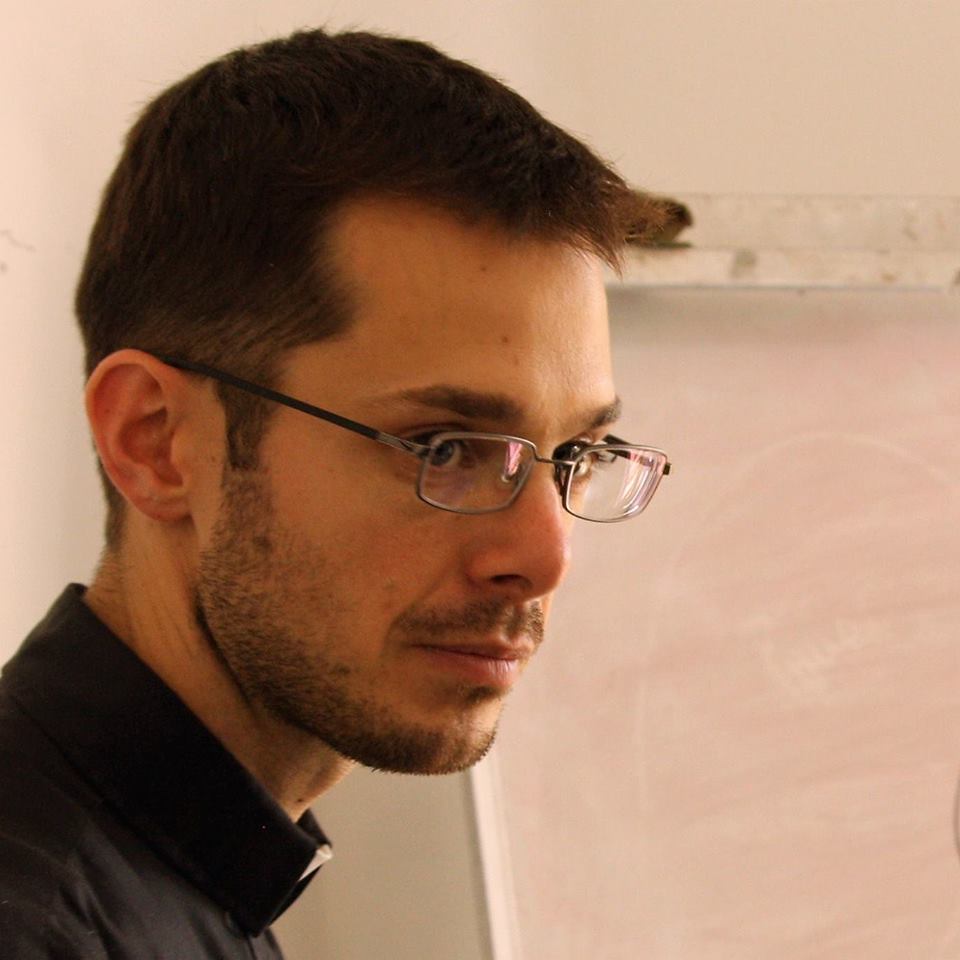Presumably, they were under tighter restrictions than what we had here in New Mexico. Here in Roswell we gathered as small groups to receive the Sacrament. Of course, this was not ideal since the whole congregation should weekly gather around Word and Sacrament as the Scriptures teach (Exodus 20:8; Acts 2:42; Heb. 10:25), but I don’t think anyone went without the Sacrament who desired it. Once the restrictions ended, we gladly resumed the practice of communing at the same time on Sunday. On the other hand, other pastors thought it best to try something different and new.
There’s more to the administration of the Sacrament than the mere vocables that effect a change in the elements. Yes, the Word of God is efficacious, but it’s not magic, nor should we treat it like magic. The confessors in Article VII of the Formula of Concord are careful to mention that the promise must be kept within the use and action of the Sacrament. What does this mean? They write,
“In order to preserve this Christian teaching on the Holy Supper and to avoid and eliminate many kinds of idolatrous abuses and perversions of this testament, this useful rule and guide is taken from the Words of Institution: nothing has the character of a sacrament apart from the use [usus] instituted by Christ or the divinely instituted action [actio]. (That is, when Christ’s institution is not observed as he established it, there is no sacrament” (SD, VII, 85).
Imagine that instead of using bread and wine, somebody thought it was a good idea to use Doritos and Dr. Pepper as the elements to be consecrated. What our Lutheran Fathers are saying is that because they had departed from the action of taking bread and wine to be consecrated, then whatever else the meal of chips and soda might be, it is not the Lord’s Supper. So also, imagine back to the heady days of medieval popery before the reformation. Often after the elements were consecrated, the host would be paraded through town in procession and then left in a shrine or tabernacle for folks to venerate. This is not the Lord’s Supper. Jesus instituted a meal to be eaten with faith in the promise, not to be worshiped idolatrously. The Confessors go on to explain…
“The usus or actio (that is, the practice or administration) does not refer primarily to faith or to the oral partaking, but to the entire external, visible administration of the Supper, as Christ established the administration of the Supper: the consecration, or Words of Institution, and the distribution and reception or oral partaking of the consecrated bread and wine, Christ’s body and blood. Apart from this practice it is not to be regarded as a sacrament…” (SD, VII, 86-87).
So let’s put the practice of online communion to the ‘use’ and ‘action’ test. We’re not denying that the pastor who is being recorded in his location is using the genuine Words of Institution. Nor are we denying the Word’s efficacy if and when it is used as Jesus intended. What exactly did Jesus intend? Here we must remember how the Lord’s Supper was first established and how Jesus distributed it.
The holy Evangelists Matthew, Mark, Luke, and St. Paul write: Our Lord Jesus Christ, on the night when He was betrayed, took bread, and when He had given thanks, He broke it and gave it to the disciples and said: “Take, eat; this is My body, which is given for you. This do in remembrance of Me.” In the same way also He took the cup after supper, and when He had given thanks, He gave it to them, saying, “Drink of it, all of you; this cup is the new testament in My blood, which is shed for you for the forgiveness of sins. This do, as often as you drink it, in remembrance of Me.”
It was on the night when he was betrayed. His little congregation was gathered in the upper room to hear their Lord’s last will and testament. Taking the bread he promised, “This is my body.” Then he personally and pastorally distributed his body to the disciples to eat. Then with the cup he said, “This is my blood.” Each of them took the one cup and drank the wine which the Lord promised was his blood “shed for you for the forgiveness of sins.”
When folks are sitting before their screens at home, are they gathered with the saints of their community around a table in one place? Is the pastor there to administer the bread and the cup? No. I know someone would say that they are gathered ‘virtually,’ but Jesus could also have projected a ‘virtual’ presence to other parts of Judea in the form of a letter or an emissary and given individuals or small groups the same promise on paper or through the voice of a spokesman. He did not. Rather he made the promise about the bread and cup to those who were about to receive the great gift from his hand. The communal gathering aspect of the Sacrament is so clear that we rightly call the Supper “Communion.” Imagine if we omitted one of the elements or changed them in some way. Would it still be the same meal Jesus instituted? Imagine if we only let the pastors eat and drink and withheld the sacrament from the baptized? Is this what Jesus intended? God be praised that we have more than the words but also the example of what happened in the upper room to guide and direct how we consecrate and administer the sacrament today.
Also, keep this in mind. If ‘virtual’ presence is all that’s necessary for a common meal, then we’d be gladly using ‘zoom’ instead of traveling long distances to celebrate Thanksgiving and Christmas with one another. Zoom is painful to use. I know that I’ve come to abhor it as a poor imitation of sitting in the same room with family and friends. That eating and drinking in the solitary confines of your home is not the same as gathering with your family for a festive occasion is all the proof we need that a ‘virtual presence’ is not a ‘real presence.’
God be praised that though there are times when it is hard to receive the Sacrament, the Lord finds a way to provide. Despite the lockdowns, we didn’t resort to new and strange practices that were distinct from what had been handed down to us from our Lord and his Apostles. Let us also be bold and encourage our Lutheran brothers and sisters to also remain faithful by not treating the efficacious Word like magic, but in accord with Jesus’ action and use so that there would be no doubt that the Sacrament is being offered for the forgiveness of sins and the strengthening of faith.



 RSS Feed
RSS Feed
